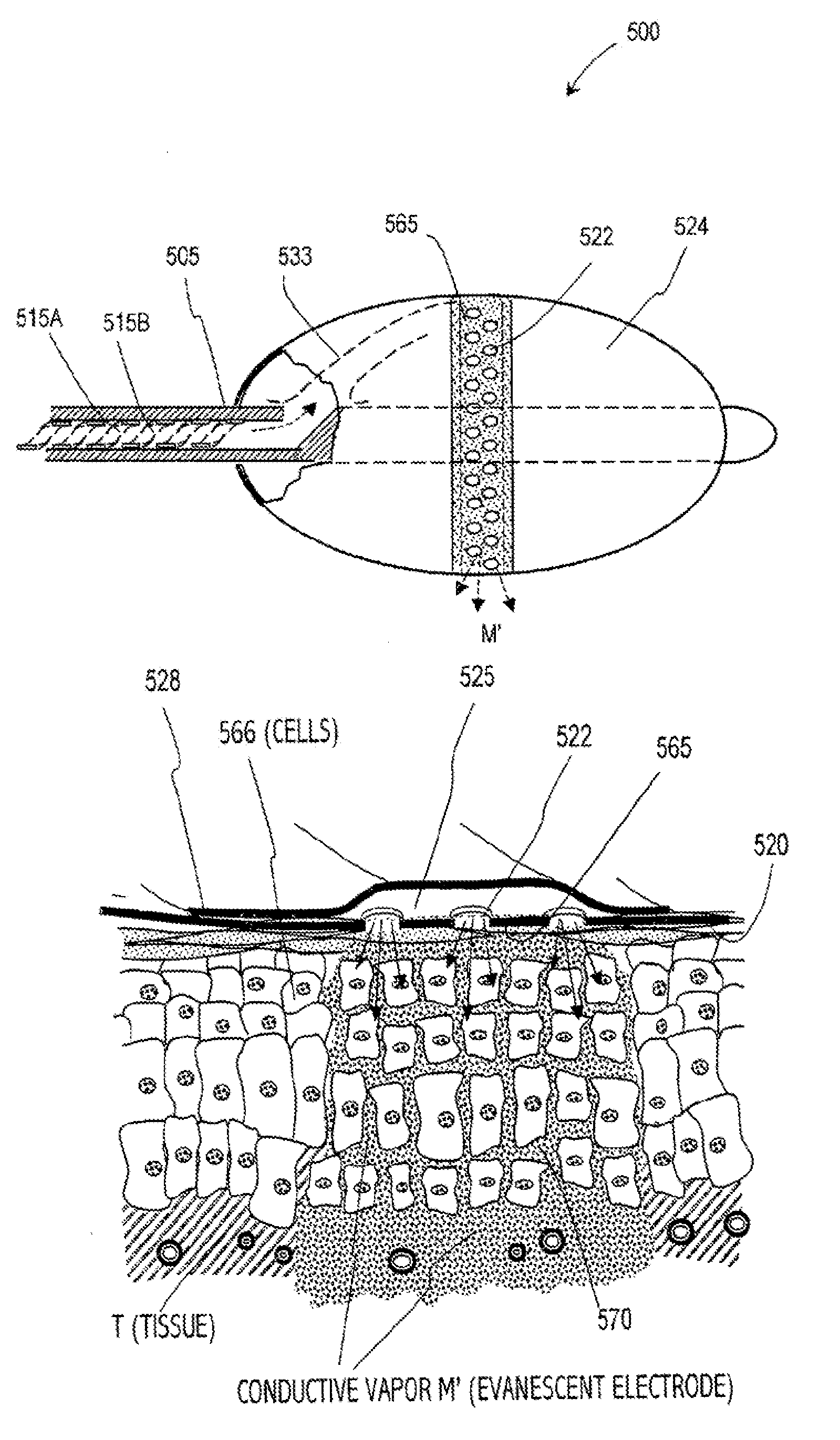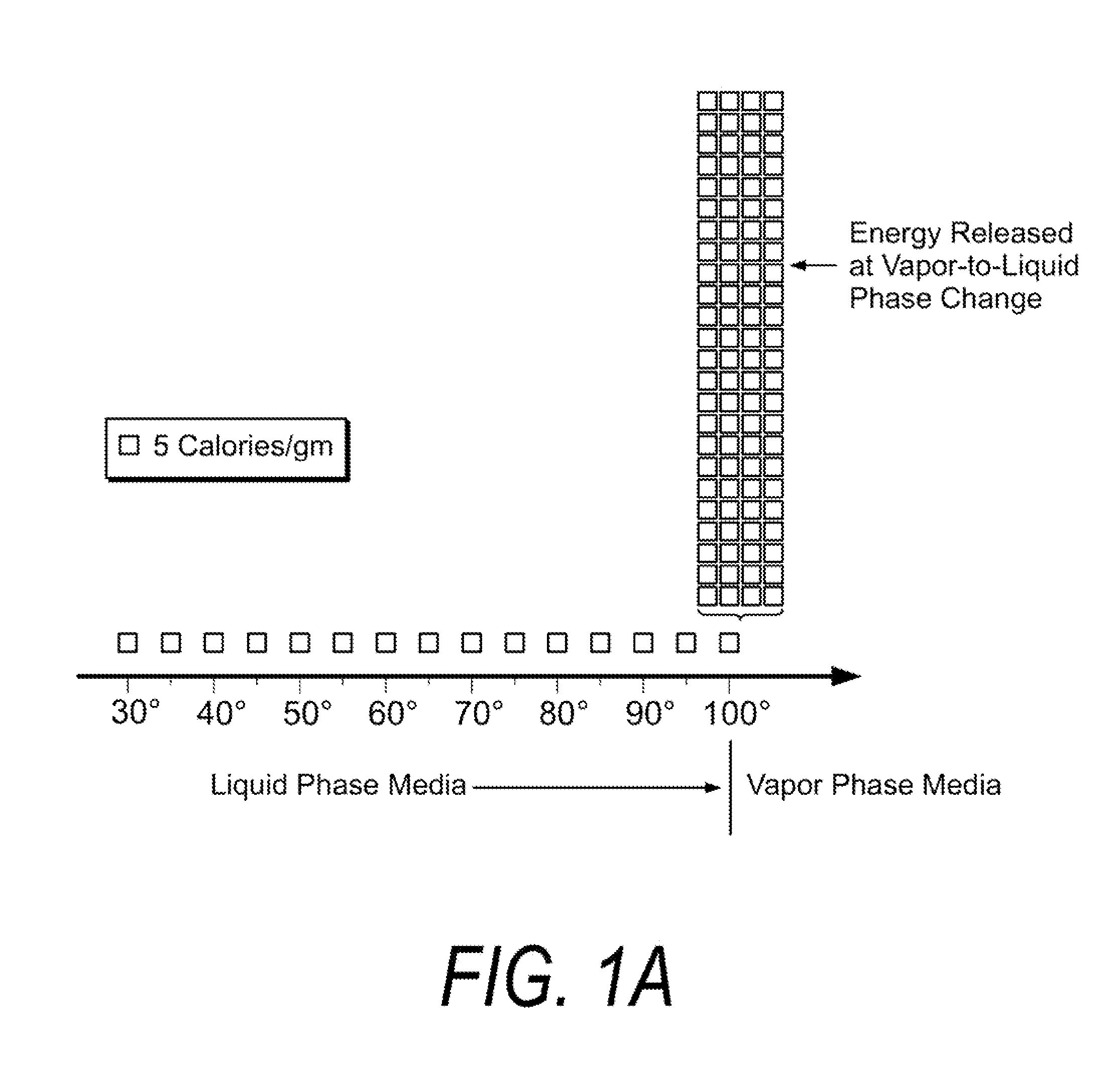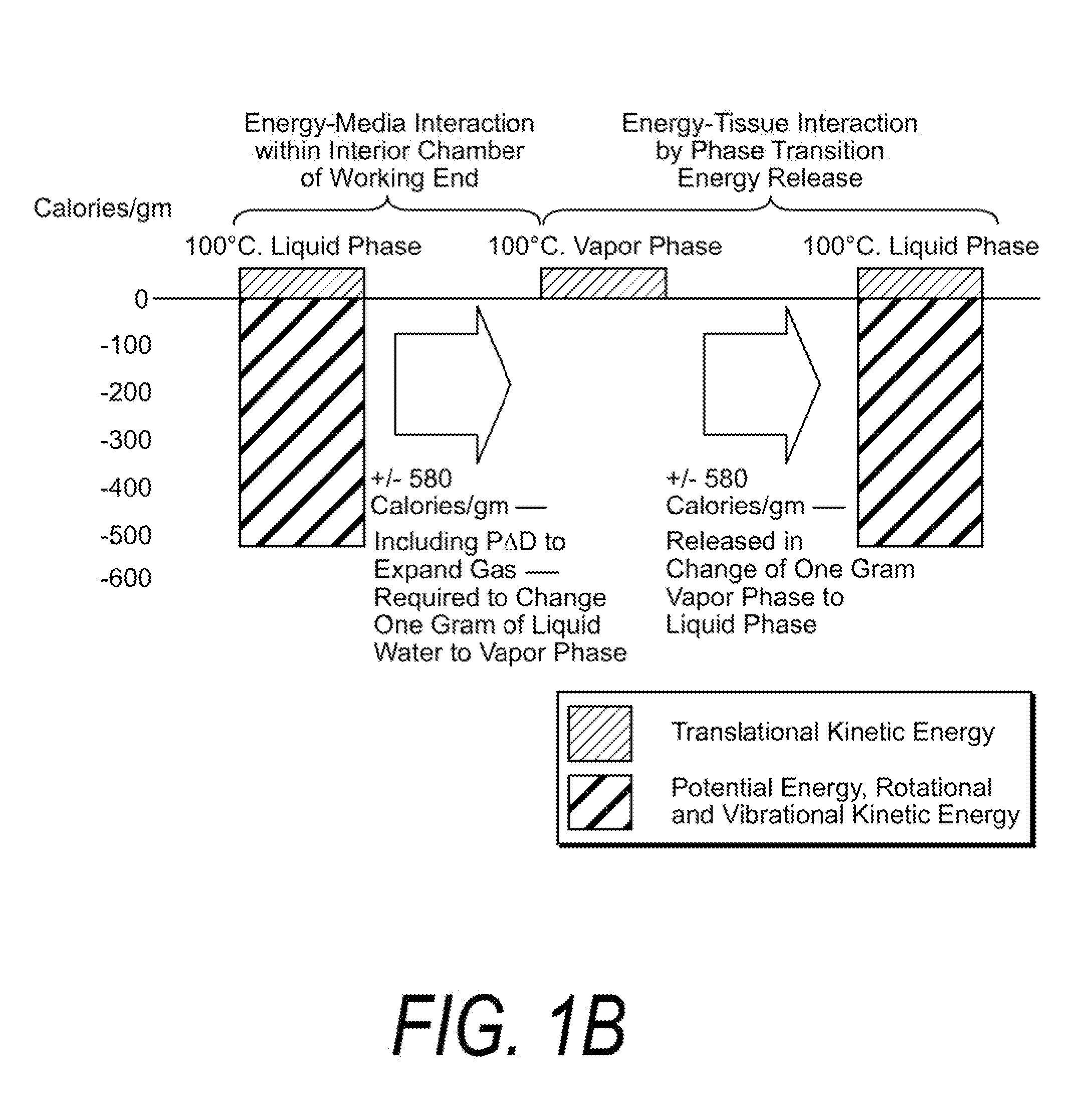Medical instruments and techniques for thermally-mediated therapies
a technology of medical instruments and techniques, applied in medical science, surgery, diagnostics, etc., can solve the problems of high “control”, achieve the effect of preventing desiccation, eschar, smoke and tissue sticking, and rapid and efficient thermal ablation
- Summary
- Abstract
- Description
- Claims
- Application Information
AI Technical Summary
Benefits of technology
Problems solved by technology
Method used
Image
Examples
Embodiment Construction
[0042]1. Type “A” Thermotherapy Instrument. Referring to FIGS. 2A, 2B and 3, the working end 10 of a Type “A” system 5 of the present invention is shown that is adapted for endoscopic procedures in which a tissue volume T targeted for treatment (a thermoplasty) can be captured by a loop structure. The working end 10 comprises a body 11 of insulator material (see FIG. 3) coupled to the distal end of introducer member 12 extending along axis 15. In this exemplary embodiment, the working end 10 has a generally cylindrical cross-section and is made of any suitable material such as plastic, ceramic, glass, metal or a combination thereof. The working end 10 is substantially small in diameter (e.g., 2 mm to 5 mm) and in this embodiment is coupled to an elongate flexible introducer member 12 to cooperate with a working channel in an endoscope. Alternatively, the working end 10 may be coupled to a rigid shaft member having a suitable 1 mm to 5 mm or larger diameter to cooperate with a trocar...
PUM
 Login to View More
Login to View More Abstract
Description
Claims
Application Information
 Login to View More
Login to View More - R&D
- Intellectual Property
- Life Sciences
- Materials
- Tech Scout
- Unparalleled Data Quality
- Higher Quality Content
- 60% Fewer Hallucinations
Browse by: Latest US Patents, China's latest patents, Technical Efficacy Thesaurus, Application Domain, Technology Topic, Popular Technical Reports.
© 2025 PatSnap. All rights reserved.Legal|Privacy policy|Modern Slavery Act Transparency Statement|Sitemap|About US| Contact US: help@patsnap.com



